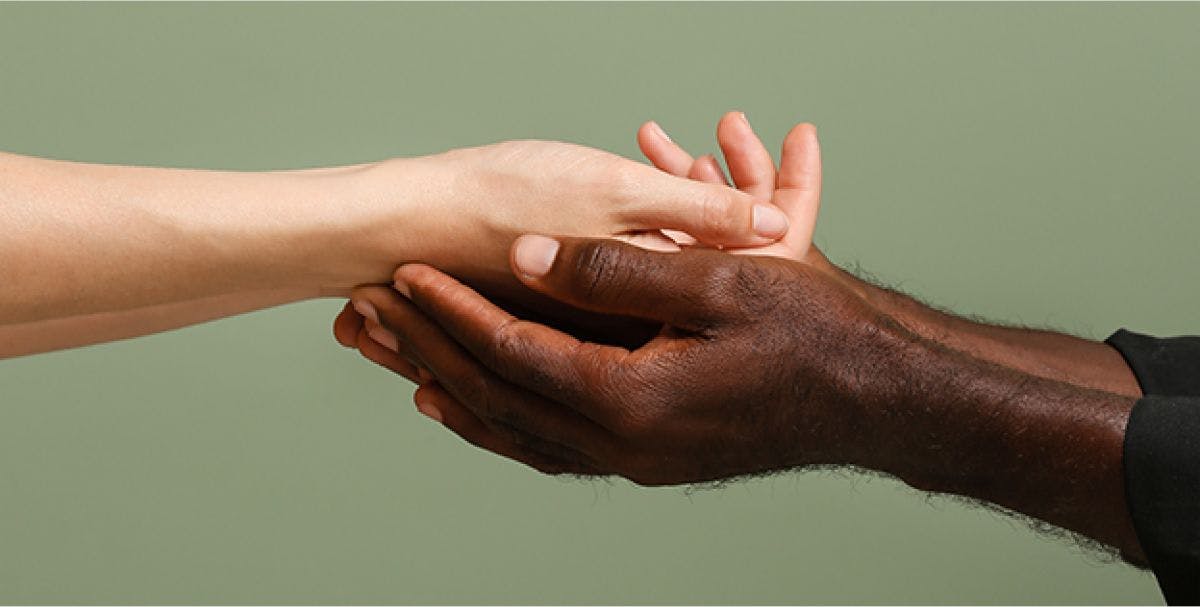I spent far too long thinking about this topic to not have anything to write about. I find it uncomfortable and scary to put my thoughts and feelings into writing, especially when my “great idea” was to write about fear, discomfort, and change. If I’m being completely honest, I’m not used to writing creatively, I’ve become so accustomed to writing scholarly reports, drawing evidence-based ideas and concepts from others, and speaking about my experiences in relation to schoolwork that I’ve never much relied on my instincts and creative reflections. When I put this into written words, I realize how sad that sounds, but I digress.
A quote that I like to live by goes something like “Get comfortable being uncomfortable”. This quote comes from Luvvie Ajayi Jones, who has a TED Talk on the same topic that you can watch here.
The first time I watched this video was in a second-year Psychology class at the University of Manitoba. I was going through a rough time coping with the harsh realities of young adulthood and coming to terms with the realization that family members aren’t faultless, and sometimes they will do, say, or think things that hurt us. “My silence serves no one” was a line that rang through my head for the remainder of the day.
In her TED Talk, Luvvie discusses leaving the world better than we found it and evoking change through having difficult conversations and speaking up. I felt empowered watching Luvvie speak about the domino effect that takes place when we speak up – it only takes one person to effect change.
I’ve carried this with me as a mantra through life that helps guide me in difficult, uncomfortable, or challenging situations. I’ll admit that I’ve made choices based solely on this mantra – I moved to Australia for 6 months, went skydiving and bungee jumping, had difficult conversations about respect and what I deserve with family members, cut ties with people who no longer served positive purposed in my life, engaged in impassioned discourse on the MeToo movement with male participants, and continue to have (what are becoming less) challenging conversations about the intersectionality of race, gender, and abuse.
I’ll also admit that there are times when I’ve forgotten these words. Times when I’ve allowed myself to sit in silence, absorbing the thoughts, opinions, and actions of others. My inaction and times when I’ve remained quiet often disappoint me greatly. However, it is my job to confront these feelings of discomfort and remind myself that it is not always my job to evoke change; sometimes we need to take some space to allow others to find their voice.
This is the first I’m realizing just how much I’ve been changed by and through these words. I allowed it first to evoke change in me on an individual level, challenging me to push personal boundaries and do things that scared me, then I began using it to oppose the thoughts and behaviours of myself and others. I wouldn’t have realized this without sitting down to write this.

Today, my time is spent as a graduate student enrolled in the University of North Dakota’s Master of Social Work program and as a Community Support Intern at Narratives Inc. In my studies, I’ve learned about different strategies to engage with and listen to individuals, communities, and organizations. At Narratives, I’ve also been learning about challenging these strategies and ways of thinking/doing/knowing.
Shamefully, very recently, I came to know about some of the harsh realities of the history of social work and the damages and atrocities such as the Sixties Scoop that were introduced and led by social workers. In present-day Canada, within the child welfare and foster care systems, Indigenous children make up roughly 54% of all children in foster care. I’d be remiss if I didn’t discuss these things here. We cannot allow this history or present-day concerns to be forgotten, we must recognize the pain and suffering caused to move forward and take action to never allow this to happen again.
I spoke about this dark history in one of my classes recently and was met with mostly silence. At first, I felt embarrassed that I tried to engage in difficult discourse with my peers, uncomfortable being left with no feedback or encouragement, then I realized that, just because I’m ready to talk about it, doesn’t mean others are just yet. If I was uncomfortable with that conversation, I likely made some or maybe all of my classmates uncomfortable as well, which is not necessarily a bad thing. Getting comfortable being uncomfortable means being able to sit with that discomfort, think critically about why it is that you’re uncomfortable, and then do something about it.
While we may not always be capable of being the first domino that evokes change, we can be part of the chain reaction. We can also create a chain reaction where there might not have been one before. If doubt clouds your mind in these moments, remember Luvvie’s guiding principles:
- 1
Do you mean it?
- 2
Can you defend it?
- 3
Did you say it with love?
You can learn more about Luvvie Ajayi Jones and her work here.
To learn more about the history and present-day issues that social work poses to Indigenous people in Canada, you can read this informative article, read the first chapter of Raven (Ótiskewápíwskew) Sinclair’s book, or watch these testimonials from Survivors of the Sixties Scoop.
Resources for Survivors of the Sixties Scoop can be found here.
If you’d like to read more about the Canadian child welfare system, please visit one of the following websites:
Government of Canada: Reducing the Number of Indigenous Children in Care




